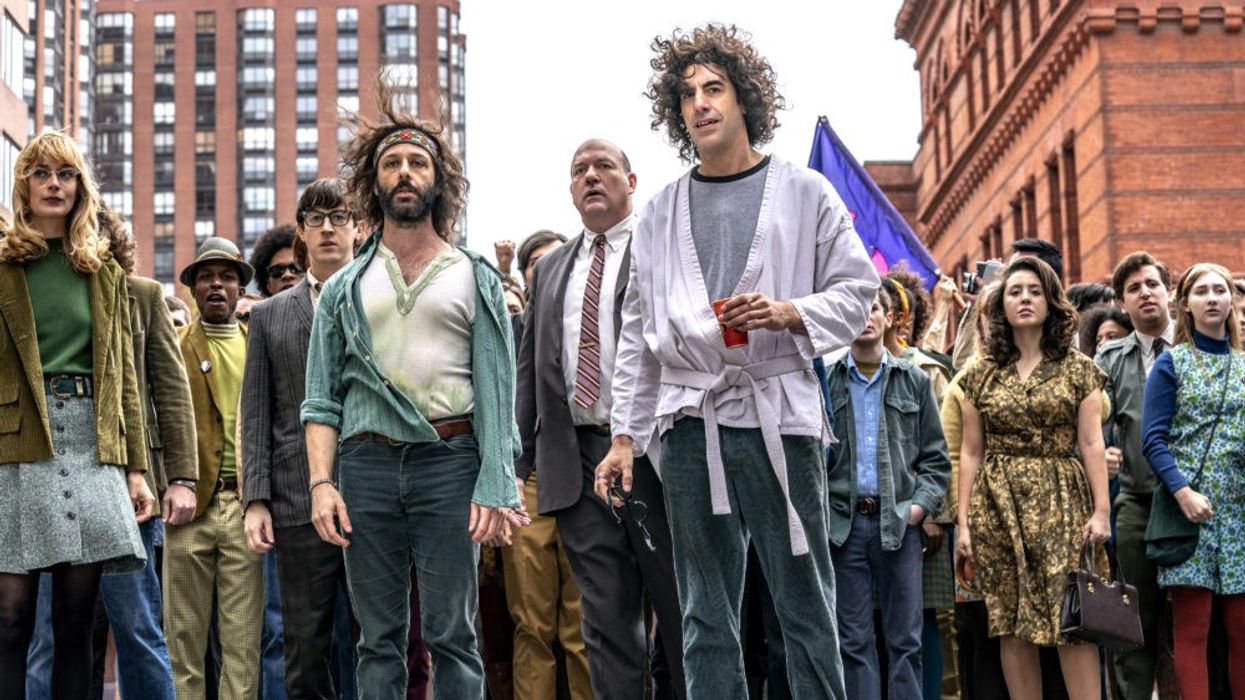10 Screenwriting Lessons from Aaron Sorkin's 'The Trial of the Chicago 7'
Let Aaron Sorkin guide you on your screenwriting journey.

If you want to learn screenwriting tips, you should learn from someone very accomplished. Aaron Sorkin has been penning award-winning screenplays for over three decades. His screenplays have earned him an Academy Award, a BAFTA Award, five Primetime Emmy Awards, and three Golden Globes. Sorkin has made a name for himself on TV shows like The West Wing, and movies like The Social Network. He recently wrote and directed Being the Ricardos for Amazon.
Today I wanted to focus on some lessons from his courtroom drama,The Trial of the Chicago 7, which he did for Netflix. We'll dig into that and see what we can glean.
Check out this video from Outstanding Screenplays and let's talk after.
10 Screenwriting Lessons from Aaron Sorkin's The Trial of the Chicago 7
1. Research real people, other films, and documents to get closer to the truth of your film and what it should be about.
Research is really important when you are working on a true story. You want to get into the minds of the characters and truly understand their points of view. That can help you assemble the beats for the story and start to build out the ideas you are going to cover.
2. To get a better idea of what a good screenplay should look like, get a screenplay from your favorite movie and watch the movie while reading its screenplay, and then repeat the process.
Education in screenwriting should be free. You can track down PDFs of your favorite scripts and read along with the movies. See how beats are described and laid out. Figure out how writers develop the twists and turns that keep you on the edge of your seat.
3. Distinguish what the film is really about and lean onto telling that story, rather than focusing on the aesthetic of the time or the place or even the journalistic accuracy.
The theme is something that comes up often when we talk about writing. It refers to what the story is really about. You have to come to terms with what you are trying to say to the audience. What cues and humanity are you trying to communicate to people?
4. Intention and obstacles are the basic principles of your story. What does the character want, and what’s standing in their way?
This simple breakdown is the heart of every scene you write. Why are your characters doing these things, and what obstacles get in their way? These could be physical hurdles or just emotional hurdles. But put things in their way that force them to confront their own issues and challenge them to change.
5. You can choose to make a film because of the relevance, but most important is always the story.
Different topics fall in and out of the zeitgeist. Your passion for what you're working on will guide you. Don't worry about what's popular, instead focus on what's good.
6. Sound is what differentiates a good film from a great one. Good sound designers can take a very specific note of what sound in a certain scene should feel like and create it.
I think there's a certain control I see in great writers. They're always thinking about the next layer inside a scene. What can you think, hear, and feel in every scene? When you think you're done with a draft, go back through and do a pass and see if there are some sounds you can add to make things feel deeper or to match the scene.
7. Movies are very powerful. They are seen by many people. The influence that your film is going to have on its audience is the most important thing.
Think carefully about the kinds of stories you want to tell and why they matter. It's so hard to write a script, and it takes so long. Make sure you're investing in something that moves you and fully communicates something you want to say to the world.
8. There’s no such thing as an interesting character who doesn’t have a conscience.
Your characters are going to make decisions. We may not agree with them all, but the best characters show justifications for their actions. We want to know their motivations and to pull apart why things happen. We want to understand their actions.
9. Learn from everyone you work with. Pay attention to the way they work, steal from some of them, and develop your own style.
To find your own voice, you're going to start by emulating others. Take what you like, and leave the rest. At some point, you'll roll all this into your personal style. Your voice is the most precious thing about your writing. It's a way to communicate your thoughts, beliefs, and vision to the readers. It's how you develop a signature. People should be able to pick up your scripts and expect a consistency that you deliver time in and out.
10. After your first draft when you discover what the movie is about, go back to the beginning, set up the ending, and peel away the things that don’t have anything to do with it.
All writing is rewriting. You're going to have to work and rework your ideas over and over before they are ready for the world. The business of screenwriting means you'll probably have a bigger and longer career rewriting screenplays than selling specs. And to make sure that career happens, you're going to need to master how to plan and rewrite screenplays. That's not too hard. It's just fixing what's broken inside them like a mechanic.
So take this wisdom and go get back to writing.
Source: Outstanding Screenplays











